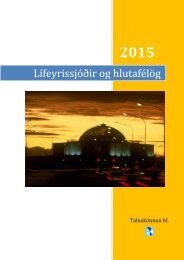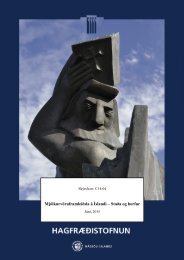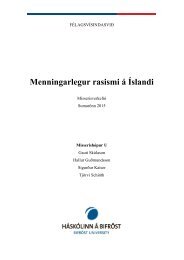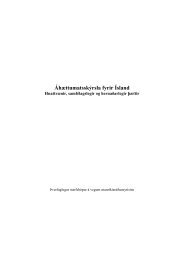Create successful ePaper yourself
Turn your PDF publications into a flip-book with our unique Google optimized e-Paper software.
WORLD REPORT 2016<br />
HUMAN RIGHTS WATCH<br />
lesbian, gay, bisexual, and transgender people, blatantly discriminatory on the<br />
basis of sexual orientation.<br />
Freedom of Association<br />
Authorities continue to enforce legislation criminalizing involvement in an unregistered<br />
organization, and at the same time arbitrarily deny registration to and attempt<br />
to dissolve nongovernmental organizations (NGOs).<br />
In March, the Ministry of Justice attempted to dissolve the only officially registered<br />
regional human rights organization, the Mahilau Human Rights Center, citing<br />
problems with its legal address. The group’s representatives maintain that<br />
security service officials pressured their landlord to revoke their rental agreement.<br />
Authorities brought a similar lawsuit against the group in 2014. In April,<br />
the ministry withdrew the lawsuit.<br />
In June, the Supreme Court deemed lawful the Ministry of Justice’s refusal to register<br />
the Human Rights Association “For Fair Elections.” The association’s<br />
founders believe the grounds for refusal were minor and correctable, and that<br />
the denial, the third since 2011, was arbitrary and politically motivated.<br />
On August 31, President Lukashenka signed a decree that the government said<br />
would improve procedures for NGOs receiving foreign donations. Belarusian<br />
NGO experts counter that the decree tightens reporting requirements and state<br />
control over use of foreign donations, and preserves existing restrictions, including<br />
wide latitude to refuse permission for foreign donations and severely penalize<br />
groups receiving unregistered foreign aid.<br />
For the first time since 2001, the authorities invited monitors from the Parliamentary<br />
Assembly of the Council of Europe (PACE) to observe the October presidential<br />
election. In its pre-electoral statement, PACE emphasized that public<br />
broadcasters are obligated to ensure equal access for candidates without privileging<br />
the incumbent president. The Organization for Security and Co-operation<br />
in Europe’s Office for Democratic Institutions and Human Rights (OSCE/ODIHR)<br />
also observed the elections. The OSCE observers found that significant problems,<br />
particularly during vote counting, undermined the integrity of the election<br />
and concluded that Belarus still has a considerable way to go in meeting its<br />
OSCE commitments for democratic elections.<br />
Key International Actors<br />
Belarusian authorities appeared to be seeking a political rapprochement with<br />
European governments and institutions, and hosted a number of high-level visits.<br />
Yet the European visitors failed to take full advantage of the opportunity to<br />
secure tangible rights improvements.<br />
The government continued to actively oppose and refuse to cooperate with the<br />
mandate of Miklos Haraszti, the United Nations special rapporteur on Belarus,<br />
appointed in 2012. In June, the UN Human Rights Council extended the rapporteur’s<br />
mandate for another year.<br />
In February, authorities invited Andrea Rigoni, PACE rapporteur on the situation<br />
in Belarus, to visit. Rigoni met with officials, opposition activists, and NGO leaders.<br />
Rigoni called on PACE to seize the “favourable momentum” and encourage<br />
further initiatives to improve human rights and full normalization of Council of<br />
Europe (CoE) relations. Yet he stopped short of specifying what steps Belarus<br />
should take.<br />
At the May UN Human Rights Council’s Universal Periodic Review of Belarus,<br />
states raised concerns about the death penalty, politically motivated imprisonment,<br />
torture, and freedoms of assembly, association, and speech, but Belarus<br />
did not commit to specific reforms of its restrictive legislation. Belarus was urged<br />
to fully cooperate with UN human rights mechanisms.<br />
In Brussels in July, the EU and Belarus held their second-ever human rights dialogue;<br />
the dialogue had been suspended since they first met in 2009. Topics included<br />
establishment of a national human rights institution; freedom of<br />
expression, assembly, and association; the death penalty; combating torture;<br />
and children’s rights. The EU also raised the detention of human rights defenders<br />
and activists on politically motivated charges. There is no publicly available<br />
information on the government’s response or any concrete outcomes.<br />
On July 31, 24 Belarusian officials were removed from the EU’s list of individuals<br />
subject to travel bans and asset freezes. In October, in response to the release of<br />
opposition figures and in the context of improving EU-Belarus relations, the EU<br />
suspended for four months restrictive measures applying to 170 individuals and<br />
three entities in Belarus.<br />
116<br />
117










